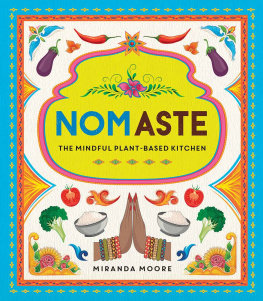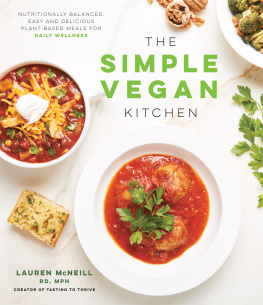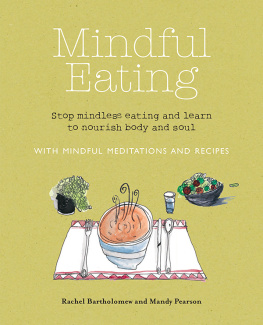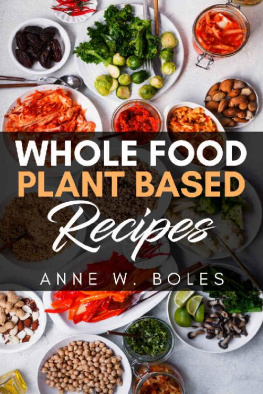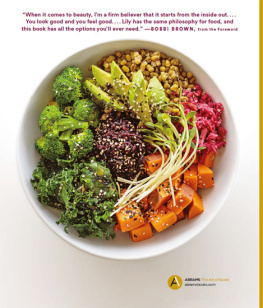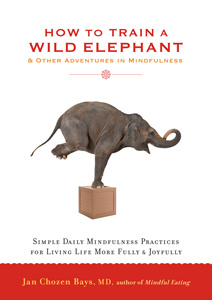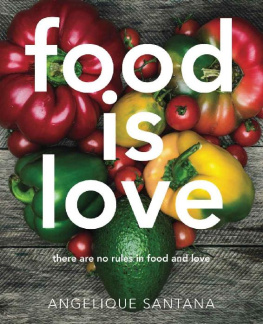NOMASTE
Copyright Summersdale Publishers Ltd, 2020
All rights reserved.
No part of this book may be reproduced by any means, nor transmitted, nor translated into a machine language, without the written permission of the publishers.
Miranda Moore has asserted her moral right to be identified as the author of this work in accordance with sections 77 and 78 of the Copyright, Designs and Patents Act 1988.
Condition of Sale
This book is sold subject to the condition that it shall not, by way of trade or otherwise, be lent, resold, hired out or otherwise circulated in any form of binding or cover other than that in which it is published and without a similar condition including this condition being imposed on the subsequent purchaser.
An Hachette UK Company
www.hachette.co.uk
Summersdale Publishers Ltd
Part of Octopus Publishing Group Limited
Carmelite House
50 Victoria Embankment
LONDON
EC4Y 0DZ
UK
www.summersdale.com
eISBN: 978-1-78783-920-5
Substantial discounts on bulk quantities of Summersdale books are available to corporations, professional associations and other organizations. For details contact general enquiries: telephone: +44 (0) 1243 771107 or email: enquiries@summersdale.com.
The author and the publisher cannot accept responsibility for any misuse or misunderstanding of any information contained herein, or any loss, damage or injury, be it health, financial or otherwise, suffered by any individual or group acting upon or relying on information contained herein. None of the views or suggestions in this book is intended to replace medical opinion from a doctor. If you have concerns about your physical or mental health, please seek professional advice.
INTRODUCTION
We are all familiar with the adage You are what you eat and its true: the food we consume really does shape our physical and mental development. But even if were full of good intentions to transform ourselves into super-healthy, super-grounded gods and goddesses, sometimes its difficult to know where to start. This book shows you how to bring the ethos and spirit of mindfulness into your daily diet and introduces you to some delicious, nutritious recipe ideas along the way.
Yoga and Ayurvedic principles are based on holistic living, vitality and compassion. If we really want to embrace a healthy, fulfilled lifestyle, its time to take a look inside ourselves, at how and what we eat and our whole mental approach to food, as well as our psychological well-being and exercise habits. Essential nutrients feed every cell in our bodies and our organs rely on the vitamins, minerals and enzymes we consume to sustain our life processes. This food energy circulates our bodies 24 hours a day as we digest and utilize the elements we need for all of our vital functions.
From learning how to eat mindfully to how to sprout your own macrobiotic foods, turn out your own perfect flatbreads and incorporate a few yoga postures into your day, this book is packed with plant-based recipes, tips and suggestions to help you on your way to becoming a healthier, happier you. Its simply a matter of connecting with our food to improve our health and rebalance our lives, together with embracing the intrinsic joy, energy and self-esteem found in that greater connection. Nomaste to that!
CHAPTER ONE:
The Yogic Kitchen
QUIET THE MIND, AND THE SOUL WILL SPEAK.
Ma Jaya Sati Bhagavati
Bringing mindful principles into your kitchen is a natural way to live a more engaged and healthful life. Food is nourishment, and the whole act of eating of feeding our bodies and minds, and of observing and valuing every item we consume is a naturally mindful activity. It is no accident that ancient cultures have built entire traditions around food. Even in Western cultures, Thanksgiving and harvest festivals are centred around appreciation for the annual crop. At their roots, these celebrations are about respect and gratitude for nutritious food and ultimately, respect for life.
How we eat is equally as important as what we eat. Giving our time and attention to the acts of selecting, preparing, presenting and eating food helps to create a deeper connection with the food that nourishes us, leading to a more profound awareness of food as essential to our well-being, rather than simply seeing it as fuel. This chapter will help you start to bring the principles of mindfulness and gratitude into your kitchen.
GETTING STARTED
Here are a few basic ways you can start to think about food more mindfully:
- Observe each item that you eat.
- Notice its texture, its colour, its smell before you eat it, or as you prepare it. Begin with something simple a blueberry, perhaps, or a salad.
- Observe your hunger.
- Minimize distractions; give your full focus to the food. If your mind wanders, gently bring it back to the food.
- Notice individual flavours, and the consistency and sensations as you chew.
- Take time to really appreciate each item you are eating. Think mindful tasting rather than mindless munching.
- Think about what it has taken for this piece of food to be on your plate: the toil of the farmer, the energy and nourishment from the sun and the rain, the miles it has travelled and the work youve done to prepare it.
- Be grateful for the vitality this food is giving you.

VEGAN?
Some readers will be vegan; others wont be. The recipes that follow are plant-based options to introduce into your diet if you wish to increase the ratio of vegetable-based meals and snacks you eat, while boosting your connection with and respect for plant foods.
BON APPTIT!
Take a leaf out of the French book of living: the French pride themselves on the length of their meals; eating is a valuable, social and shared act of love, respect and togetherness. Next time you have a meal, be prepared to spend a little longer really appreciating your food rather than rushing through it.
BENEFITS OF MINDFUL EATING
The merits of mindful eating extend far beyond the nutritional value of eating healthy food. A myriad of sensory wonders is waiting to be discovered!
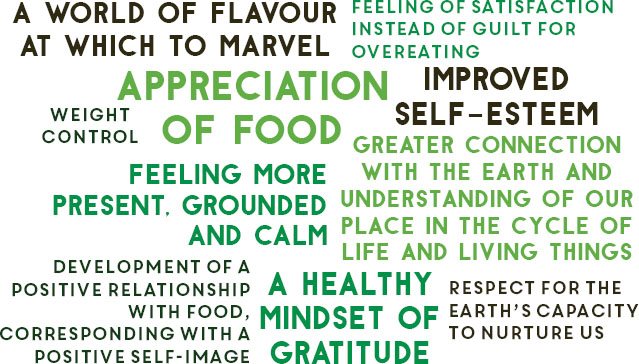
NOURISHED BODY, NOURISHED SOUL
Fitness gurus will talk about calories in and calories out. And while it is important to balance the energy we consume with the energy we expend for weight control, this reduces the whole ceremony of eating to an equation.
Instead, yoga gurus propound the virtues of seeing food as sustenance for both body and soul. Eating food that nourishes and energizes your body also nourishes and energizes the mind. Showing respect to our food is also respecting ourselves. Eating mostly plant-based foods, with a spirit of gratitude, demonstrates compassion for the earth and responsibility for our own lives. This ties in with the yoga principles of karuna (compassion), maitri (kindness), aparigraha (simplicity), brahmacharia (wisdom), tapas (self-discipline), santosha (contentment) and ahimsa (non-violence), which collectively contribute to dharma (purpose or virtue).
Aparigraha is a core concept that we can apply to our relationship with food, for it embraces the notion of moderation in what and how much we consume, while cleansing our bodies from the inside. With brahmacharia, the focus is on inner peace and enlightenment, living a spiritual rather than materialistic life. Ahimsa embodies the idea of being gentle and not killing other beings; santosha involves being satisfied with what we have, rather than striving for more; and tapas requires a clear life plan and way of practising, leading to a disciplined life.

